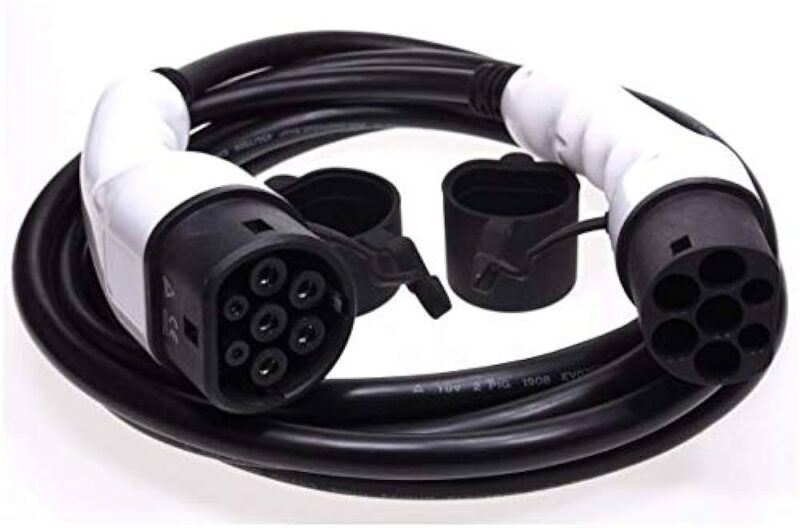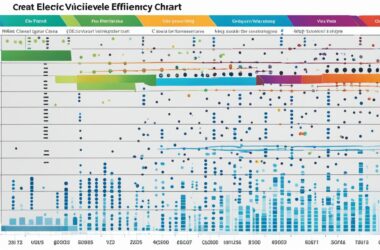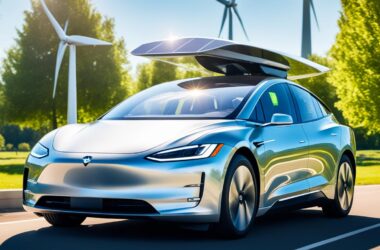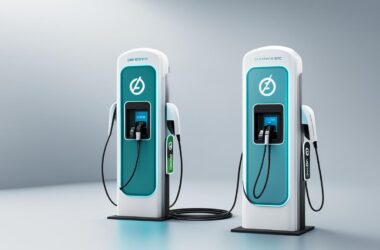For electric vehicle (EV) owners, the convenience of home charging is unmatched in the realm of EV ownership. Yet, for some, the standard granny cable accompanying their vehicle might prove insufficient in reaching the nearest power socket. In such instances, a heavy-duty 13A extension lead emerges as a viable solution, bridging the gap and providing an additional 8 miles of range per hour. However, despite the practicality extension leads offer in overcoming this challenge, prioritizing safety during electric car charging remains of utmost importance.
While extension leads serve as a practical solution for extending the reach of EV charging, ensuring safety throughout the process is paramount. It’s crucial for EV owners to meticulously evaluate the safety standards of their chosen extension leads, prioritizing those rated at 13A or higher to guarantee continuous power delivery without overheating risks.

Understanding Extension Leads for EV Charging
Before delving into the utilization of extension leads for electric vehicle (EV) charging, it’s paramount to understand the intricacies associated with them. Extension leads employed for this purpose must adhere to stringent safety standards to mitigate potential hazards effectively. Opting for extension leads rated at 13A or higher is imperative to ensure uninterrupted power delivery without the risk of overheating, which could potentially result in fire hazards.

Furthermore, it’s vital to carefully select extension leads explicitly engineered for high-wattage appliances such as electric car chargers. Generic multi-outlet power strips or standard household extension cords are inadequately equipped for this task and may pose significant safety risks if utilized for EV charging purposes. These cords lack the necessary robustness and thermal management features required to handle the sustained power demands of electric vehicle charging, thus increasing the likelihood of overheating and electrical hazards.
By prioritizing the selection of extension leads that meet the requisite safety standards and are explicitly designed for high-wattage applications, EV owners can mitigate potential risks associated with the charging process. It’s essential to exercise diligence in choosing extension leads rated at 13A or higher to ensure continuous and safe power delivery during EV charging sessions. Investing in quality extension leads specifically engineered for electric vehicle charging not only enhances safety but also contributes to the reliability and efficiency of the charging infrastructure, ultimately ensuring a seamless and secure charging experience for electric vehicle owners.
Selecting the Right Extension Lead
Choosing the appropriate extension lead for EV charging requires careful consideration of several factors, with safety taking precedence. Prioritize extension leads engineered for outdoor use, particularly if they will be exposed to moisture. Look for heavy-duty cords equipped with robust plugs and connectors capable of withstanding the rigors of charging an electric vehicle.
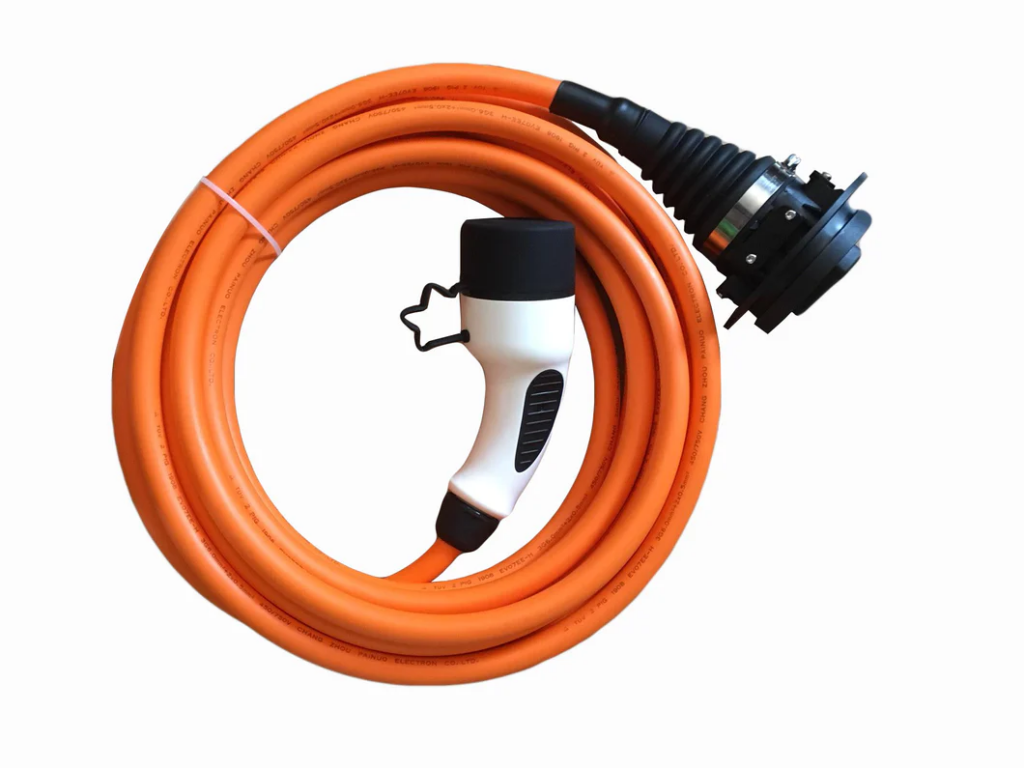
Furthermore, ensure that the extension lead’s amperage rating aligns with that of your charging equipment, typically ranging from 16A to 32A. This compatibility is crucial for preventing overloading, which can result in overheating and potential hazards during charging sessions.
Safety Precautions and Best Practices
Maintaining safety during electric car charging with extension leads entails adhering to rigorous precautions and best practices. Before each use, meticulously inspect the extension lead for any signs of damage, such as frays, cracks, or exposed wires. Additionally, verify that the wall outlet intended for charging is properly grounded and free from visible defects.
Throughout the charging process, vigilantly monitor the temperature of the wall outlet, extension lead, and EV charger. If any of these components exhibit excessive heat, discontinue charging immediately to prevent overheating and mitigate potential safety risks.
Manufacturer Recommendations and Expert Advice
Taking the initiative to seek guidance from your electric vehicle manufacturer is a prudent and responsible measure to ensure safe charging practices. While certain manufacturers may advise against the use of extension cords for charging due to valid safety concerns, others may offer valuable recommendations or supply compatible adapters designed to facilitate safe charging procedures.
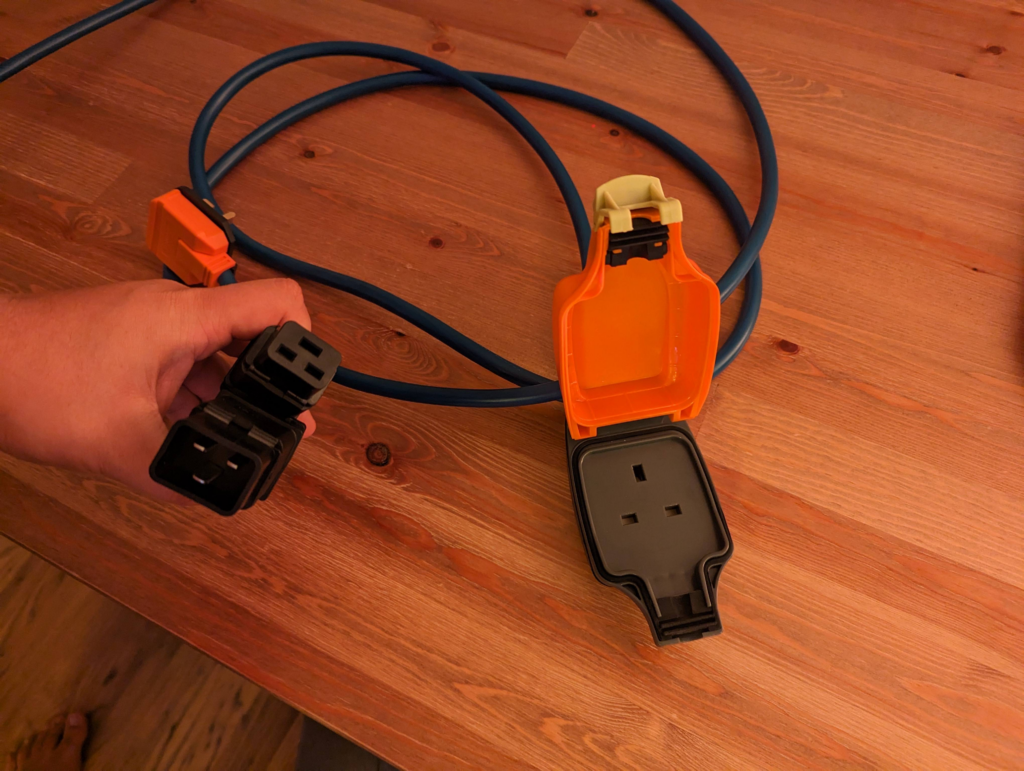
It’s imperative to steer clear of the hazardous practice of daisy-chaining extension leads, as this can significantly heighten the risk of overheating and electrical hazards. Instead, opt for the utilization of a single extension lead specifically rated for outdoor use. Additionally, it is crucial to ensure that the extension lead is fully unraveled during charging sessions. This allows for optimal heat dissipation, minimizing the risk of overheating and ensuring the safety of the charging process for both the electric vehicle and the charging infrastructure. By adhering to these safety precautions and best practices, EV owners can mitigate potential risks and ensure a safe and reliable charging experience for their electric vehicles.
Conclusion
In conclusion, while employing extension leads for electric car charging can offer convenience and flexibility, prioritizing safety is non-negotiable. By meticulously selecting high-quality extension leads rated for continuous power delivery, adhering to safety guidelines, and vigilantly monitoring charging conditions, EV owners can enjoy the convenience of home charging without compromising safety.
Remember, if there is any doubt about the safety of an extension lead or socket, it’s imperative to err on the side of caution and seek expert advice to ensure a safe charging experience. With careful consideration and adherence to best practices, charging an electric vehicle using an extension lead can be both safe and convenient for EV owners worldwide.
Internal Links
https://bestevcharger.co.uk/zappi-installation-cost-2/
https://bestevcharger.co.uk/solar-panels-for-car-charging/
https://bestevcharger.co.uk/charging-a-car-battery-overnight/
https://bestevcharger.co.uk/best-home-charger-for-tesla/
https://bestevcharger.co.uk/three-phase-voltage-uk/





